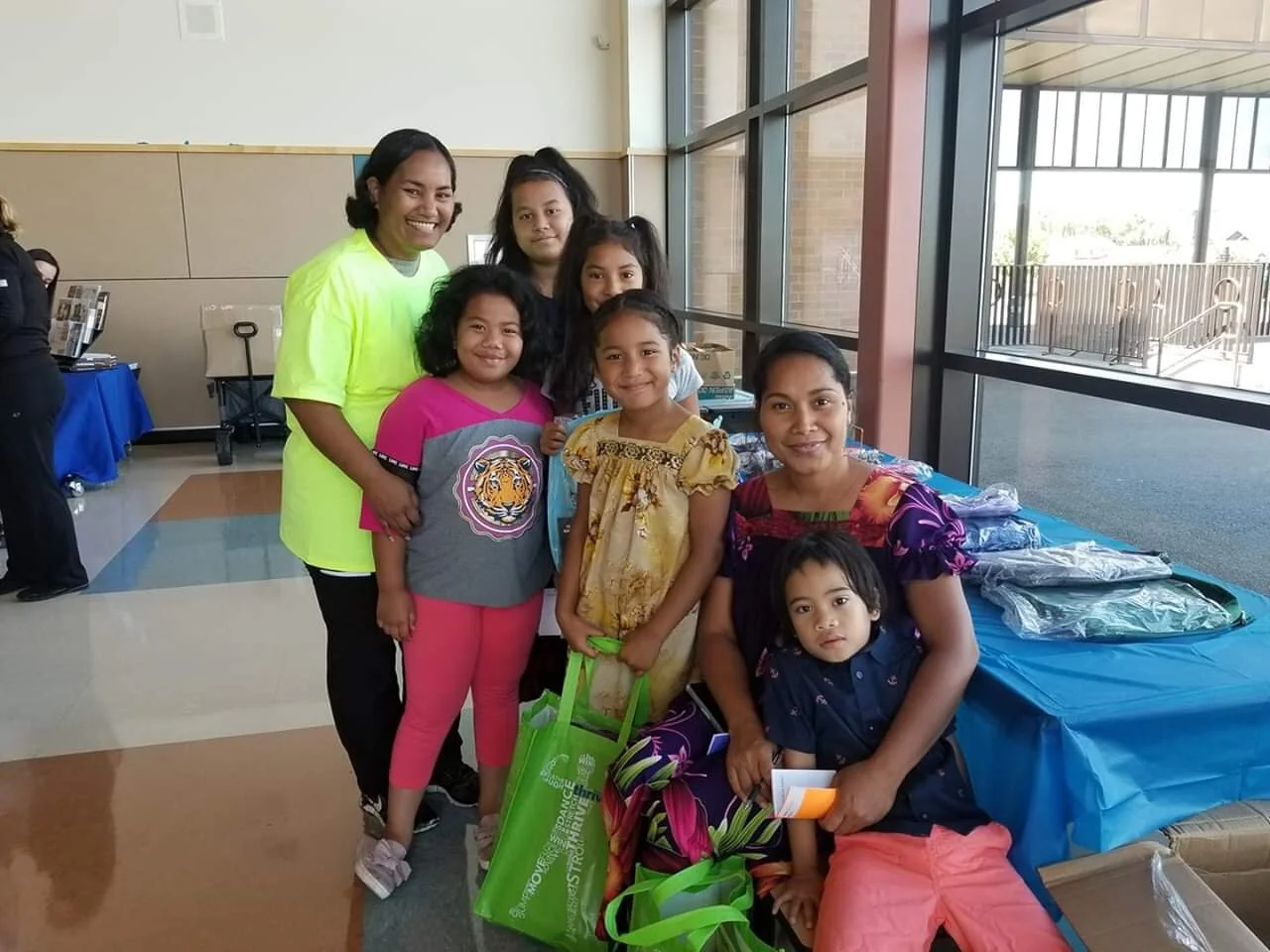From Door Knocking to Phone Banking: Census Outreach in the Era of COVID-19
/Artwork by Micah Bazant.
Image description: A circle of images, including faces, buildings, a bottle, an apple, a bus, bananas, a bridge, a pencil and notebook, surround the words “Imagine a World Where We All Count.” A tree grows through the words. All of this on a lemon yellow background.
Data collected through the U.S. Census determines how many seats each state has in the U.S. House of Representatives, as well as how federal funding gets portioned out. An accurate and complete count means communities will receive the funding for education, transportation, food assistance programs and other services they need and deserve. Historically, Black, Indigenous, and other communities of color, children and youth, undocumented immigrants, disabled people, renters and houseless people have all been undercounted. In 2020, more resources than ever are going toward counting these hard-to-count communities, but COVID-19 has made counting these communities even more challenging.
We at Northwest Health Foundation are beyond impressed by the shifts community-led organizations have made to continue Census outreach while as many of us stay safe at home as possible.
Many of these organizations are part of the We Count Oregon campaign led by Dancing Hearts Consulting.
Unite Oregon originally had extensive plans for field outreach. Face-to-face interactions are best for reaching hard-to-count communities, and they intended to knock on doors and attend events in Rogue Valley, Multnomah County and Washington County. In Rogue Valley, they had subcontracted with groups that engage forest workers, many of whom are immigrants, but this work has been put on pause. Instead, they’re phone-banking and boosting the Census on social media. In order to make this happen, they had to distribute computers and phones and set up Internet access for their Census field workers, as well as teach them how to use Zoom. They trained the field workers virtually to conduct outreach in six different languages. So far, they’ve experienced positive reactions. Community members are excited to receive phone calls.
Asian Pacific American Network of Oregon (APANO) has also shifted from door-knocking in the Jade District and Washington County to phone and text-banking. As APANO’s Census Equity Manager Marchel Hirschfield said, targeted phone lists are effective, and Oregon needs more of them. APANO has also set up a virtual Census Assistance Center through Zoom and is collaborating with other API organizations to expand hours and language capacity. The Census Bureau hotline has been inundated, so it’s important for Oregonians to have assistance in their own language for any questions or concerns they have about completing the Census. Though Zoom is a great platform, it still doesn’t bridge the accessibility gap, because not everyone has Internet access or knows how to navigate Zoom.
Forward Together’s Census workers connecting through Zoom.
Image Description: A grid of fourteen video feeds, each one capturing a person smiling. Five flash peace signs, One a Thumbs-up.
Forward Together is also phone-banking, relying on Zoom and Google Drive to coordinate their field workers. In addition, they’re joining virtual events to talk to community about the Census, meeting community where they already are. For the most part, people are responding positively, appreciating the opportunity to connect with someone during hard times. Forward Together is also sharing beautiful artwork created by their Artist-in-Residence Micah Bazant, encouraging groups and individuals to post it on social media or print a physical poster. Download Micah’s artwork here.
In Southwest Washington, The Noble Foundation (TNF) is conducting Census outreach as part of the Washington Census Alliance. TNF has also formed a Southwest Washington-based Complete Count Coalition made up of six organizations led by BIPOC. They’ve trained 30 Trusted Messengers, adults and youth from Clark and Cowlitz County, to provide Census support and education to historically-undercounted community members, especially BIPOC, LGBTQIA+, Chuukese, Latina/o/x, and people experiencing houselessness. Much of this is taking place over the phone, but one of their Trusted Messengers is also connecting with people experiencing houselessness in-person. Their social media campaign has included a raffle, live Census Chats on Facebook, and highlighting Trusted Messengers on #TrustedMessengerMonday. (Join the conversation using the hashtags #GetCounted, #GetOutTheCount, #2020Census, and #CensusChats.) The Noble Foundation is also supporting organizational partner Our Place Multicultural Center to include Census outreach in COVID-19 Rapid Response efforts. When community members come in to receive services, staff provide information about the Census and will even sit down with them at a computer to guide them through the process. Disinfectant, masks and gloves all at hand, of course!
BIPOC communities have met this challenge like they’ve met every challenge before, with resourcefulness and resilience. The percentage of Oregonians and Washingtonians counted goes up every day!




















